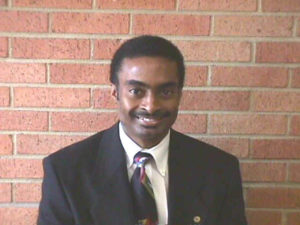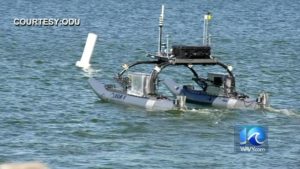By Patrick McElroy EDI’19
On Wednesday, January 24, the EDI Fellows had to privilege of hearing from Dr. McKenzie, the chair of the Modelling and Visual Simulations Engineering department at Old Dominion University. The field of study is relatively new, especially as an undergraduate program like it is at ODU. However, as a branch of engineering, it is broadly applicable. Dr. McKenzie presented examples that ranged from game physics engines, war simulations, a birthing simulator, to even a system for drug administration, all of which utilized Modeling and Visual Simulation in some way. It can be used for such various purposes because of its nature as a general problem solving tool, with Dr. McKenzie referring to it as “problem solving on steroids”.
As we move into the future, this kind of modelling technology will only become more crucial and integral to companies, schools, and labs. Dr. McKenzie pointed out that a lot of the underlying theory behind this major was put in place in the early 90’s, but at that point, the field lacked the computational power. As our computers continue to grow more and more powerful, we will be able to model increasingly complex systems with more accurate results. But even today, places like ODU are reaping the benefits of an education in modelling and simulation. The undergraderatues in ODU’s Modelling and Visual Simulation Department have seen success in a variety of areas, with one team even winning money as part of a autonomous boat competition in Hawaii. In the future of this competition, they hope to be able to build the entire environment within a simulation and test a virtual model of their boat within it.
The branch of engineering that Dr. McKenzie introduced us to was interesting in itself, but I think it was also useful for us because many of us, especially the seniors, who are in the midst of deciding their future discipline. Seeing this example of a powerful and yet non-traditional engineering majors gave a lot of us a new perspective on engineering as a whole, and what we might be interested in more specifically pursuing. Thanks again to Dr. McKenzie for coming and talking to us, and giving us such an in-depth look at this field!

